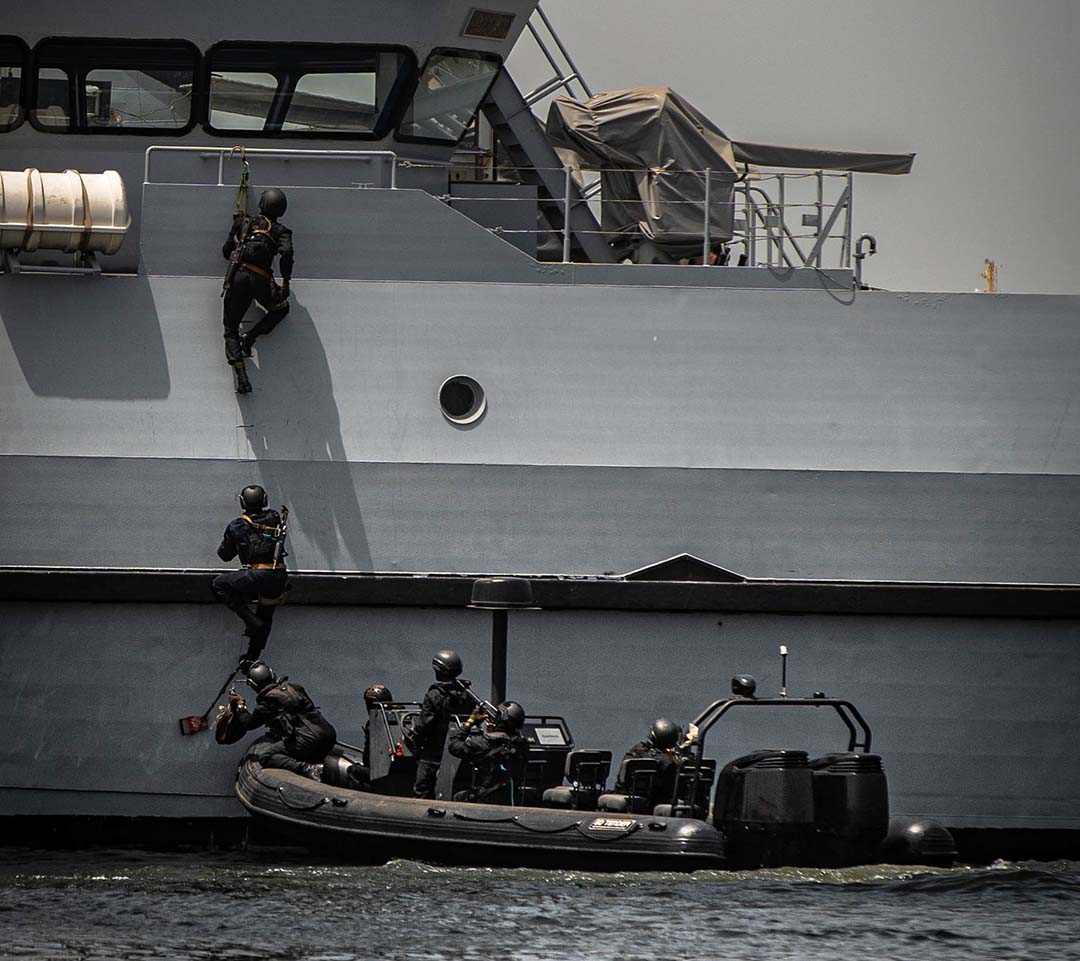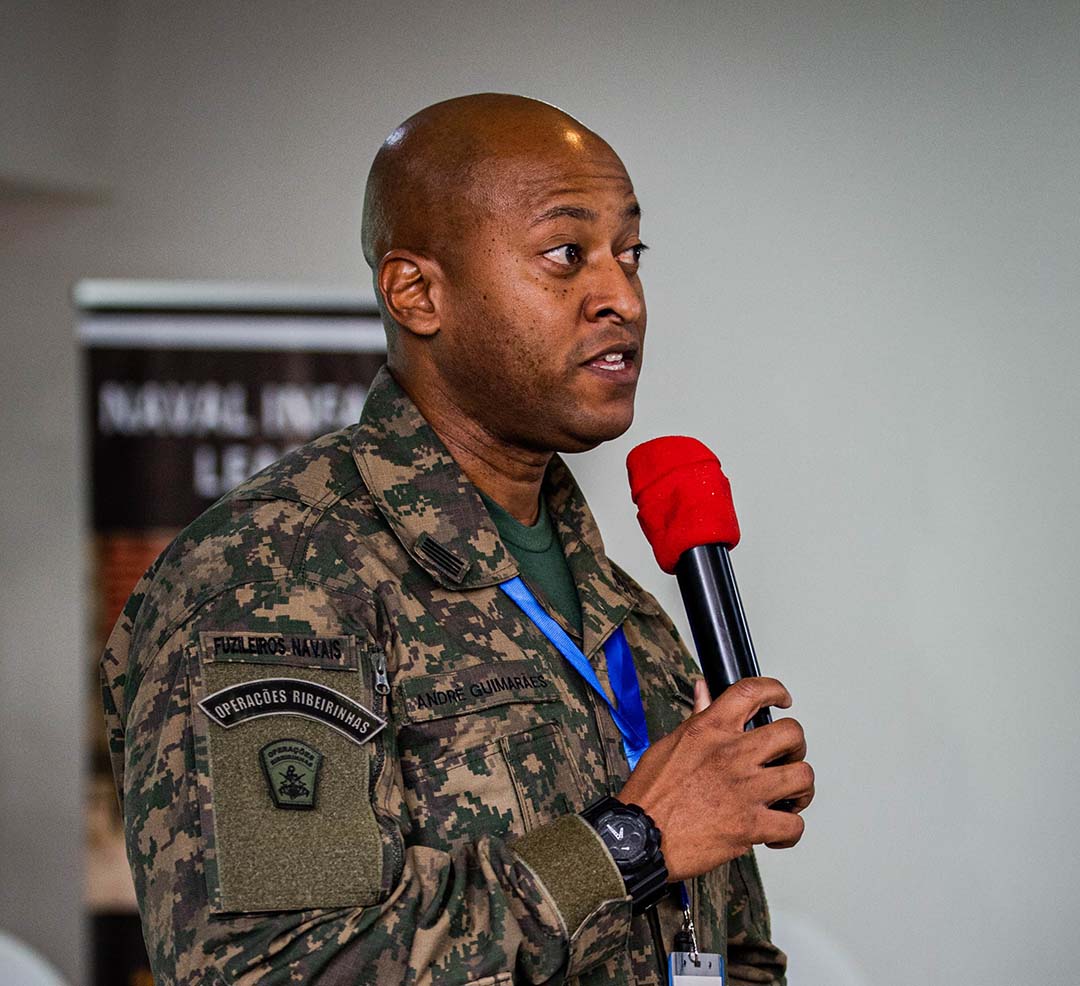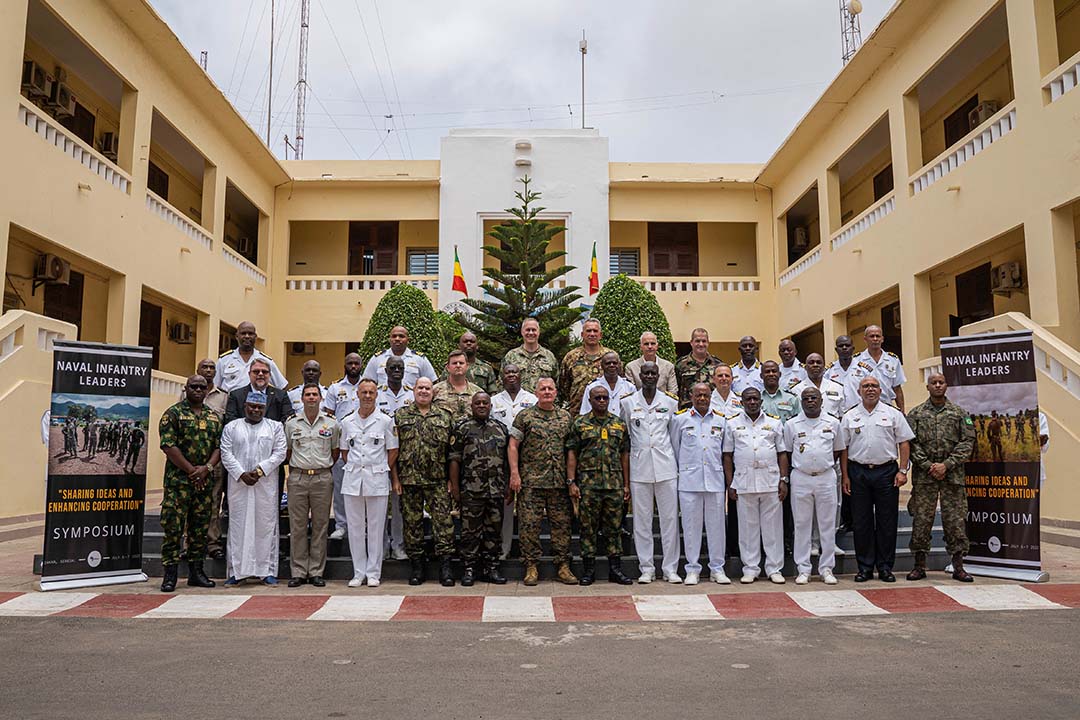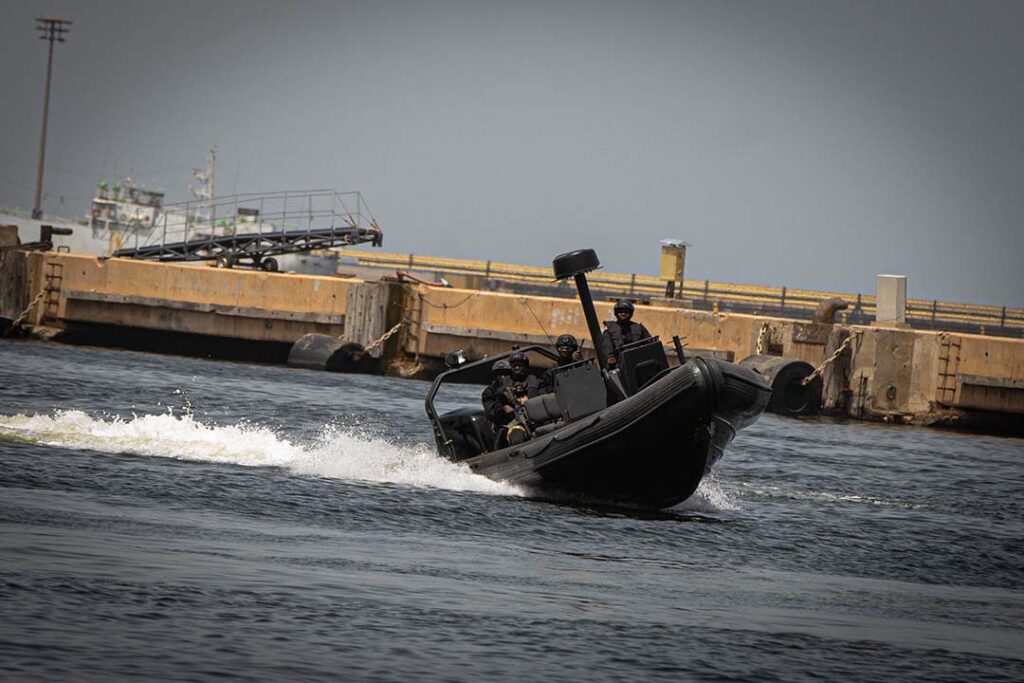ADF STAFF
The word “momentum” was repeated often during the first in-person Naval Infantry Leaders Symposium-Africa (NILS-A) held in Dakar, Senegal. For security leaders attending it reflects a growing consensus of the need to build partnerships and invest in the naval infantry, which is at the “tip of the spear” in the continent’s toughest fights against terrorism, trafficking and piracy in its littoral zones.
“We all came here for the same reason: to defend freedom,” said Maj. Gen. Tracy King, the commander U.S. Marine Corps Forces Europe and Africa. “I sense the momentum in this room from we 30 nations joining together … we all sense the value in a team like this.”
Navy leaders from 22 African countries and eight others met to share experiences and strategies on how the continent’s naval infantries can adapt to face new threats. The symposium included presentations on issues ranging from riverine combat to open-source technology and strategies to widen access to professional military education.

The two-day event ended on July 7 with the signing of a charter in which attendees pledged to deepen partnerships built in Dakar and continue to share information.
“There is nothing binding [in the charter], but it is a starting point with open doors and we need to enter those doors,” said Rear Adm. Oumar Wade, Senegalese chief of naval staff and co-host of the event.
Lessons from Harsh Environments
The knowledge on display at the symposium did not come just from Africa; it crossed oceans. Sea and War Capt. Andre Guimaraes of the Brazilian Marine Corps painted a picture of the harsh reality of fighting pirates and traffickers in the Amazon region where the enemy hides in thick vegetation. There, he said, troops face threats such as snakes, malaria, intense heat and rain. “It’s impossible to do anything in the Amazon by yourself,” he said.
He added that Marines cannot fall back on equipment and must trust their training. “The comms don’t work, there’s no radar,” he said. “It’s so important to make sure the operator can make good decisions.”
Brazil has developed a riverine course in the Amazon from which they’ve graduated 3,000 Marines. Guimaraes said constant training is necessary to keep skills sharp, adding that the Brazilian course is open to Marines from across the globe.
“All the technology in the world doesn’t amount to much if you don’t have Marines in the unit ready to be leaders,” he said.
Attendees stressed the value of training and immersion programs to put African Sailors and Marines in unfamiliar environments. This will promote new skills and interoperability, said retired Senegalese Navy Rear Adm. Samba Fall, a guest of honor at the event. “It is important that we have exchange programs allowing forces to do drills in another country and experience the environment and the threats they face,” Fall said.

Adapting to Diverse Threats
As threats in littoral zones have multiplied in recent years, countries are turning toward the naval infantry. These units go by different names: In Senegal, they are Commandos, in Ghana they are the Special Boat Squadron, and in Angola they are Fuzileiros. They are designed to be versatile, capable of protecting offshore energy infrastructure, pursuing traffickers in mangrove swamps or conducting land-based hostage rescues.
They are trained for specific tasks such as the hostile boarding of an uncooperative vessel. But, attendees said, they must be prepared for land combat.
For example, the Nigerian Special Boat Service is engaged in six missions ranging from pursuing militants in the Niger Delta to fighting the Islamic State-West Africa Province (ISWAP) on arid land in the northeast.

“We have come to accept that our role is not going to be just for the maritime environment alone, but anywhere,” said Capt. Olayinka Aliu, commander of the Nigerian Special Boat Service. “Our development, our training was modeled to be able to operate at sea, in the riverine terrain and on land.”
This diversity of missions necessitates regular training and the exchange of best practices. In Ghana, the chief of naval staff has placed a particular emphasis on sharpening maritime interdiction capabilities as the country faces pirate attacks in the Gulf of Guinea. Lt. Cmdr. Seth Dzakpasu, commander of the Ghana Navy Special Boat Squadron, left NILS-A with new regional connections and an appreciation for the threats they must address together.

“From the discussion, we clearly saw the evolving nature of threats in the Gulf of Guinea, and we could talk clearly with the experience of other naval infantry units who have been able to employ certain skills to overcome their challenges,” he said.
He plans to bring back these lessons to Ghana to adapt training in his country. “This gives us the insight into which skills we need to include in our planning in order to have a more enduring dominance of our maritime space,” he said.

